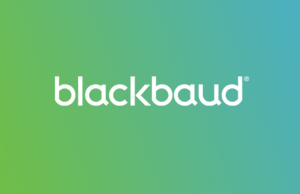It was the Tweet heard around the world — well, heard pretty loudly around the Pacific Northwest, at least: “OMG! @FCC Commissioner Baker voted 2 approve Comcast/NBC merger & now is lving FCC for A JOB AT COMCAST?!?
Reel Grrls, a Seattle-based nonprofit that aims to teach young girls about film production and media justice, had questioned Comcast’s hiring of Meredith Attwell Baker. A few months earlier, as a Federal Communications Commissioner (FCC), Baker had voted to approve a merger between Comcast and NBC.
The original Tweet by @ReelGrrls went out May 12 and by May 13 the organization received an email from Steve Kipp, a vice president at Comcast. “I respect your position on freedom of the press. However, I hope you can respect that this tweet has put me in an indefensible position with my bosses. I cannot continue to ask them to approve funding for Reel Girls [sic], knowing that the digital footprint your organization has created about Comcast is a negative one,” he wrote. “I’m truly sorry that Comcast’s partnership with Reel Girls [sic] had to end on such a sour note.” He misspelled the organization’s name in the email. After the weekend, Reel Grrls Executive Director Malory Graham made a phone call to Kipp asking for a conversation. Wanting to give him a couple of days to respond, Reel Grrls started to think about how to get the news out about what had happened and called in some allies: Freepress.net and MAG-Net.
The organization did not hear back from Comcast, said Lila Kitaeff, technical director for Reel Grrls, save for a public apology after news hit The Wall Street Journal and The Washington Post a week after the original Tweet. In news stories, Comcast said it was not its corporate policy, nor was Kipp acting on any official policies, and promised to reinstate funding.
“They did reach out to us after that happened,” Kitaeff said of Comcast, but by that point the organization had decided to decline the funding. Instead, with partners Freepress and Media Action Grassroots Network (MAG-Net), Reel Grrls asked donors to make up the $18,000 shortfall. A May 20 email to supporters included a video made by the girls in the program and $14,000 was raised the first day. By the end of the month, approximately $24,000 in donations had arrived — from more than 600 individual donors – almost all new donors. Emails were sent to 1,700 addresses on the Reel Grrls’ email list, as well as about 5,500 supporters of MAG-Net, and Freepress.net.
Reel Grrls typically gets contributions from about 150 donors each year, along with some foundation and government funding that makes up its annual budget of about $300,000. “It was so amazing for us. It feels like we really expanded our community of supporters,” Kitaeff said. Checks or cash sometimes included handwritten notes about how proud the donor was for the stand taken by Reel Grrls. One donation was $1,000 but the average contribution was about $30. The majority of donations were via online, although Kitaeff said they were still receiving upward of a dozen pieces of mail daily into June.
It’s unlikely that Reel Grrls would be willing to accept funding from Comcast in the immediate future, said Kitaeff, but added that she could not speak for the organization’s long-lasting financial policies. They are interested in helping Comcast figure out other ways the company can support media justice organizations.
The summer program that had been funded by Comcast is a signature initiative by Reel Grrls, where advanced students make promotional videos for local nonprofits. Nonprofits get a chance to have a video made and girls gain experience working with a client, Kitaeff said. Comcast specifically wanted to fund the program and had been a partner for four years, she added. In response to the outpouring of support, Reel Grrls will shift the focus of the program, and participants will make videos about free speech and media justice issues, said Kitaeff.
Having raised more money for the program than originally was funded by Comcast, Reel Grrls is considering using the additional dollars to send participants to a media conference or bringing in speakers to have a conversation with students, which usually number around a dozen. All of the extra funds will go into the summer program, Kitaeff said. “We never would have been able to accomplish this without turning to our allies,” Kitaeff said, crediting Freepress.net and Center for Media Justice for blasting the message to their email lists and offering some public relations consultation that helped formulate the original press release and timing. NPT












